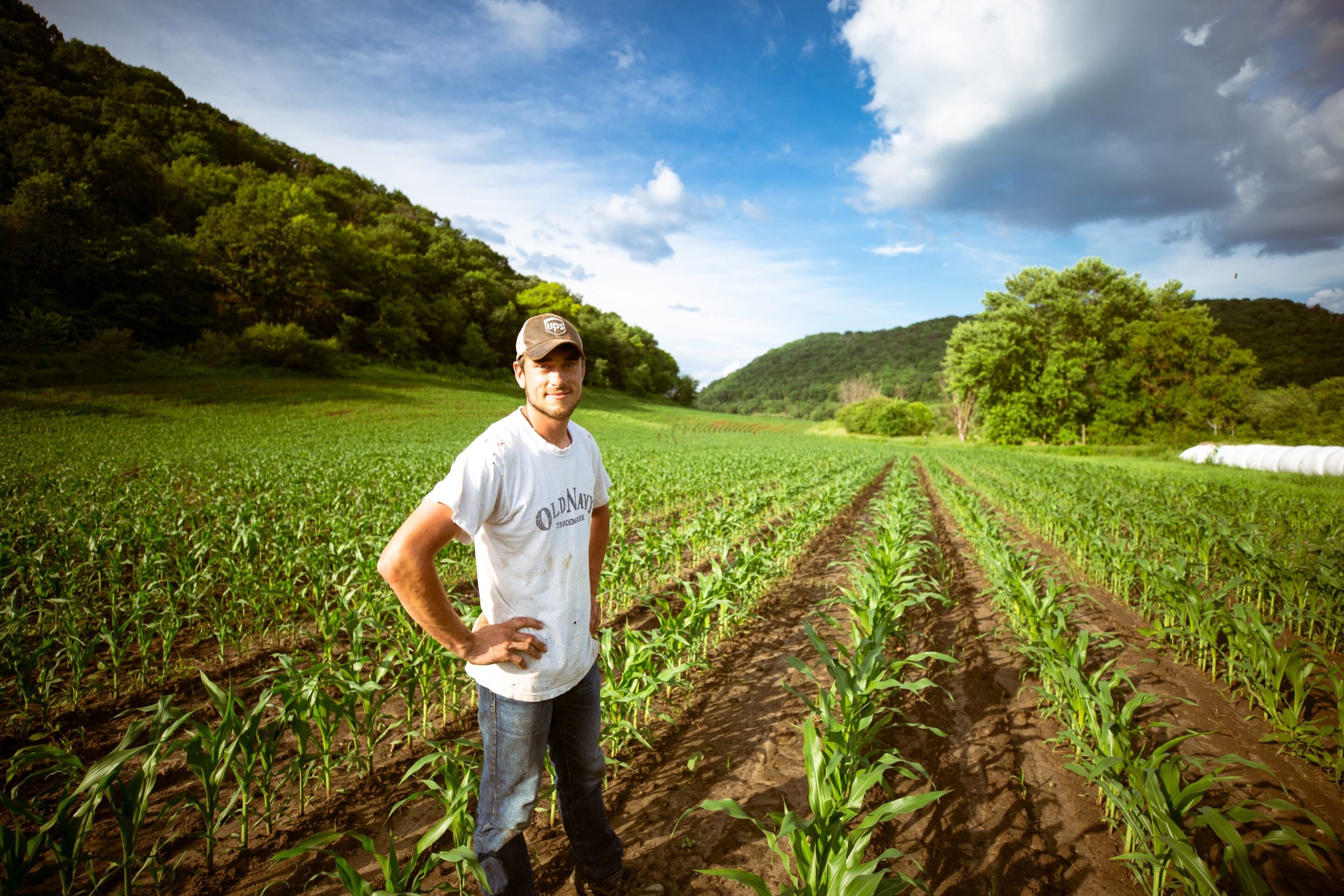
Agriculture is a stressful occupation, and farmers struggle with anxiety and depression at higher levels than the general population. A new study from the University of Illinois Urbana-Champaign examines differences in mental health challenges for men and women farmers, focusing on the role of social support in mitigating stress. The findings are published in the International Journal of Environmental Research and Public Health.
“We were interested in understanding depression and anxiety among Illinois farmers, and we wanted to bring attention to social support and location, especially with regard to gender. When we think about mental health and agriculture, we also want to think about the person in a broader context.
“In addition to what they find stressful, what are the supports and the ways of coping that people might have? Our findings draw out some of the intricacies in these relationships,” said study co-author Courtney Cuthbertson, Illinois Extension specialist and assistant professor in the Department of Human Development and Family Studies, part of the College of Agricultural, Consumer and Environmental Sciences at Illinois.
The researchers surveyed 536 Illinois farmers—about 70% men and 30% women—who were primary owners of a farming operation. The participants responded to questions about agricultural stress, mental health, social support, and resilience, as well as demographics and farm characteristics.
They found that 34% of respondents met the criteria for at least mild anxiety disorder and 26% met the criteria for at least mild symptoms of depression, compared to 18–19% in the general population. While the overall findings were similar for men and women farmers, men were more likely to report mild symptoms, while a greater proportion of women experienced severe anxiety and depression.
Personal finances, time pressures, and economic conditions were the most common stressors for both men and women. However, interpersonal relations contributed to higher stress levels for women than for men.
The odds for women to experience depression due to geographic isolation were four times higher than for men. Among farmers who indicated low family support, women had 12 times higher odds of depressive symptoms and eight times higher odds of anxiety symptoms than men in the sample.
“We also found that social support differs for men and women, as male farmers were significantly more likely to report high social support from a significant other compared to the women in the sample,” said lead author Josie Rudolphi, Illinois Extension specialist and assistant professor in the Department of Agricultural and Biological Engineering (ABE), part of the College of ACES and The Grainger College of Engineering.
This aligns with literature about the broader population. Women are often expected to do housework and care work in addition to farmwork, and they are more impacted by negative events that happen to friends and family, the researchers said.
“Although we don’t know the makeup of the partner dynamic in the sample, the findings indicate there are gendered expectations about who’s providing social support. It seems as though women, even when they are in partner relationships, are not receiving the sort of social support from their partner that men report getting,” Rudolphi stated.
Lower social support combined with high stress from geographic isolation may compound to create challenges for women farmers’ mental health, the researchers noted.
“This emphasizes the need for continued support in rural farming communities with limited mental health services. Providing services and resources that increase perceived social support among women farmers could improve their mental health outcomes,” Rudolphi concluded.
Rudolphi and Cuthbertson are co-directors of the North Central Farm and Ranch Stress Assistance Center, a 12-state, 15-partner collaborative based in Illinois Extension that offers stress management and mental health interventions for Midwestern farmers and farm workers. The center is supported by the USDA Farm and Ranch Stress Assistance Network.
More information:
Josie M. Rudolphi et al, A Comparison between Farm-Related Stress, Mental Health, and Social Support between Men and Women Farmers, International Journal of Environmental Research and Public Health (2024). DOI: 10.3390/ijerph21060684
College of Agricultural, Consumer and Environmental Sciences at the University of Illinois Urbana-Champaign
Citation:
Study explores stress, social support and mental health for men and women farmers (2024, October 8)
retrieved 8 October 2024
from https://medicalxpress.com/news/2024-10-explores-stress-social-mental-health.html
This document is subject to copyright. Apart from any fair dealing for the purpose of private study or research, no
part may be reproduced without the written permission. The content is provided for information purposes only.

